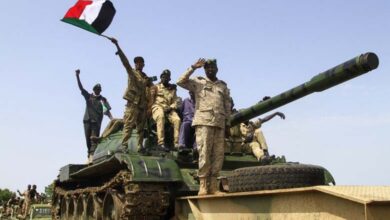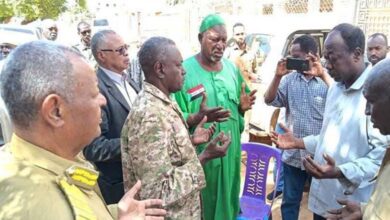Tunisian president continues reform battle, calls for Ennahdha to be designated as a terrorist group

Tunisian President Kais Saied has decided to put an end to the political paralysis caused by the interventions and obstructions of the Ennahdha Movement at the parliamentary and governmental levels, coinciding with the growing popular discontent with the deteriorating economic conditions, the high unemployment rate, and the setback in the health sector, which reflected a record increase in the number of cases and deaths from the coronavirus. Ennahdha was preoccupied with its own domestic competitive issues over the distribution of roles and leadership positions that Rached Ghannouchi dominated to the point that the country collapsed.
Corruption, violence, and impunity practiced by Ennahdha from its position of dominating the Ministries of Interior and Justice, and establishing dubious alliances only to serve its political interests, and avoiding any accusations against it, despite the existence of suspicions about the involvement of its supporters in assassinations, the most prominent of which was the assassination of opponents Chokri Belaid and Mohamed Brahmi in 2013.
Tunisian President Kais Saied has relieved the interim president of Tunisian radio, Shukri Chniti, from his duties.
The Tunisian presidency announced in a statement that President Kais Saied decided to relieve the interim president of the Tunisian radio, Shukri Chniti, from his duties, in the latest step for President Said since the dissolution of the Supreme Judicial Council. Saied did not mention an alternative to Chniti in the statement.
The President of Tunisia recently dissolved the parliament and dismissed the previous government, and replaced the Supreme Judicial Council with another council, and many of the holders of positions, who used their positions for personal or partisan interests, at the expense of the ancient Tunisian people, with emphasis on the protection of rights and freedoms.
Tunisian President Kais Saied’s reform decisions, which rid the Tunisian people of many corrupt individuals supported by Qatari money, have raised questions about many events since the revolution in 2011. The decisions were revealed by the defense committee regarding the assassination of Chokri Belaid and Mohamed Brahmi.
The defense team made a surprise announcement about the Financial Secret Service of Rached Ghannouchi, in view of the accusations contained in it. The charges start with receiving tens of millions of dollars in money from the Qatari Amiri Diwan, and do not end at the borders of the communication with foreign parties.
The Defense Committee presented documents and documents on how the money transfer process for the accounts of Najih al-Haj Latif, Ghannouchi’s advisor and unknown in political circles, took place, considering that it was the secret link in the issue of bank transfers.
Ennahdha had to respond after exposing the actions of its president and members, calling the accusations fallacies, lies and malicious allegations and denying the presence of a member of the movement, Najeh al-Hajj Latif.
Social media in Tunisia have been buzzing, with images circulated widely of news reports published in Qatari newspapers and websites mentioning a visit by Ghannouchi to Qatar along with his special adviser Najeh al-Hajj Latif, along with photographs of the visit, according to the news published years ago.
The denial sparked a storm of criticism, and further charges were leveled against the head of the movement of involvement in the serious accusations mentioned by the defense team in the case of the assassination of Belaid and Brahmi.
The defense team accused the Qatari Communication Company Ooredoo Tunis and its Qatari General Manager, Mansour Rashid Al-Khater, who claimed that he arranged four meetings with Ghannouchi, and assigned a team of specialists from the company to ensure that there were no listening devices at the meeting place in a luxury hotel on the outskirts of Tunis.
The defense accused Qatari telecommunications company Ooredoo of spying on Tunisian communications.
The Free Constitutional Party in Tunisia called for classifying Ennahdha Brotherhood as a terrorist group, freezing the funds of this Brotherhood octopus to dry up its sources of funding, and referring the files immediately to the National Anti-Terrorism Committee to classify these organizations as terrorist organizations and hold accountable all their founders and accomplices.
Islamic affairs expert Hisham al-Najjar said earlier: If Ennahdha is labeled a terrorist movement, it means depriving Qatar and Turkey of a key pillar on which to rely for the time being in the plan to revive the Muslim Brotherhood project in the Arab region, starting with Tunisia and Libya, and weakening and curbing the terrorist militia activity of ISIS and al-Qaeda, which depends mainly on the support and backing of the Brotherhood.












